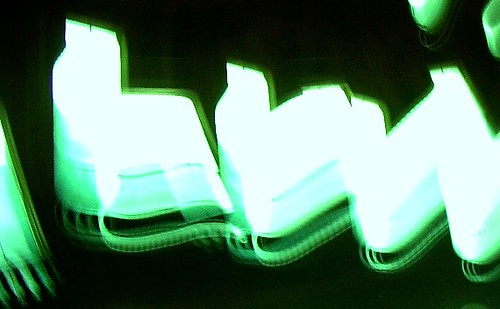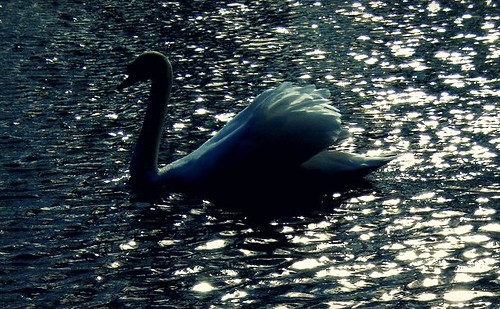Friday 24 April 2009
Ballard
The majority of people who recognise the name of JG Ballard, I imagine will do so because of the Spielberg film ‘Empire Of the Sun’ which was adapted from his semi-autobiographical novel of the same name, or for the controversy that surrounded the film ‘Crash’, another adaptation. Although many recognise his talent, he was always a somewhat peripheral writer, politely feral and unashamed. What I consider to be some Ballard’s finest work is his exegetic meta-novel, which began with the seemingly depraved, narcissistic indulgences of the super-solvent in ‘Cocaine Nights’ (in retrospection I have come to realise it started before that in the work of ‘High Rise’ with its claustrophobic atavistic tribalism), and concluded with the darkly populist frustrations of ‘Kingdom Come’. This corpus of work was intended to lead the reader through the writer’s preoccupations with the pathologies and irrationalities of neo-bourgeois existence.
There are many things to say about these novels, but of particular interest to me from this historical vantage, was his apprehension of a ‘middle-class’ rebellion; a revolution not of the oppressed or abused, but of the comfortable. The veil of self-deceit had been lifted from the promises of generalised aspirationalism, a culture that had left opportunistic palates super-saturated with everything that economical dominance could provide for them, but palates once so readily indulged were now found jaded. Deeper experiences and thrills were deemed necessary; simple 'decent' folks discovering the joys and fears of a little ‘bad behaviour’. This analysis of this dangerous backlash of the jaded palate came to dominate in the final books, ‘Millennium People’ and ‘Kingdom Come’, in which the rot had seeped further down the class chain, and the 'common' people had also come to wish for more than just their passive entertainments and single serving puddings, not because of the positive acknowledgement of such behaviours' vacuous pathology, but because of a primal selfish demand for more.
These emergent problems, he mused, were a result of the deeper self-satisfactory pathologies and status issues that lurk in all humanity, yet also reflected a growing reaction to the constant and terminal expectant promise of growth, and reiteration of the Nu. The next fantastic gum flavour, cleansing-wrinkle-stuffing-miracle-cream, or infinitely-animated-portable-monolith were ceasing to hold their desired effect. The insidious, interminable whisperings that come through the media from the corporatocracy, were no longer quite able to slay the anxiousness and frustration of an unrecognised unfulfillment, even though these same engines were feeding on such weaknesses. Product acquisitionalism had been found wanting, and no expensive watch or imaginative pizza topping was going to salve that. The engine of product creation had reached an apogee, tripping over it self, with availability of the Nu in opposition to the ever-increasing expectation for it; culture chewing on its own bloated tail like a lip-sticked Ouroboros.'
Deliberately, he narrates rallies and uprisings in familiar surrounds; in Malls and suburban driveways, in business parks and high-rises, ever-aware of the significance of setting. In the hyperbolic landscape of Psychogeography, it is always observed that the stage which the characters roam upon plays a pivotal role in a deeper understanding of the situation, be it a shopping centre, a housing estate or a political climate. The scene and context is as equal and as relevant to the dialogue, as any of the characters.
I believe Ballard's novels contain a significance that can be lost on a reader without a context for his ideas; complaints about lumpen characters and poor plotting often abound. A reader seeking entertainment or the finest prose, would find these books difficult (unless they had a trite taste for the unusual or macabre), because they require a large investment in the authorial conversation. Many of his writings are in a sense the re-workings of a theme; that of Ballard's important pre-occupational musings on human motivation, impulsion and pathology in general. He considered us to be somewhat sick and so our ugly simplistic populisms are satired and parodic parleys constantly aggress.
In unrequired defence, his are not stories in the simple sense, but rather the continually re-formulated and re-examined observations, of a long and intense self-dialectical conversation about human behaviour, focused primarily on our propensity for psychopathology in all its forms, ranging from the deeds of the individual to those of our collectives. There is a slight snobbishness in the critique of Ballard’s work, because he chose to use the form of the novel as a vector for an evolving didacticism, and many speak of smut and shock, but I think there is much to be learnt from them, if they are read with his intentionality in mind.
R.I.P.
Image by http://www.flickr.com/photos/catfunt/248129627/
Tuesday 14 April 2009
Blundering Blindly
It has always been tempting for thinkers and historical observationalists to overlay a narrative onto to what they have known of the world; humans have a long and colourful history in the denial of contingency, in the art of myth, and of fevered teleological dreams. There is nothing in essence wrong with such a play so long as a humble agnosticism is maintained, and the myth building doesn’t spill into hubris. More promising has been the increasing acknowledgement and embracement of the value of uncertainty and the denial of universal absolutism.
Having struggled through the false-oppositional maze of recent human mental history, with all of its ontological gates and stiles, blacks and whites, and thrashed in the relativity of the post-modern void, we seem to be approaching a kind of tipping point, a seeming critical-mass of a particular awareness that is less anxious of the Vast. This awareness is one that is enabled to taste the universe anew, with a palate cleansed of outmoded notions, disabling dogmas, and the disastrous social ideologies that have been substantiated by the modern myth of progress.
The attempt to overlay new social systems onto ‘civilisation’ has always typically either been sinister or ridiculous; however, I certainly don't think we have seen the last of such attempts or of their avatars. Unfortunately narcissism, psychopathology and hypocrisy are the inevitable inhabiters of all such projects of forced social evolution. Social ideals and ideas are forged in a dangerous flame and their theoreticians are often flippant, enveloped as they are in their own personal fantasies, little imagining that their Utopia's might actually come to pass or come to literally smoulder in the recklessness of their derivative simplicity.
Personally it seems to me that in these troubled and troubling times, huge opportunities exist for fringe and novel thinkers, there exists a potential to embolden valuable and neglected memes, of ancient cultural practices and of futurist technologies; we cannot afford to limit ourselves. Not only can we feedback onto our environment, but we have the opportunity to do so consciously and with intent and a now relatively sophisticated historical cognisance.
Nevertheless I believe a time of great hardship and psychological dislocation is upon us, one that will test and terrify us all. In this time we will have to be very vigilant of ideologues and messiahs; there are many dysempaths roaming the hinterlands of our ‘civilisation’, some shunned and chained, others sadly we have elevated (or neglectfully allowed to rise) to the highest echelons of our societies, where they wreck and ruin. If we value our self-respect and our inchoate intellectual privileges, we cannot afford to keep blundering blindly into the future, whilst neglecting the lessons of the past.
Subscribe to:
Posts (Atom)






